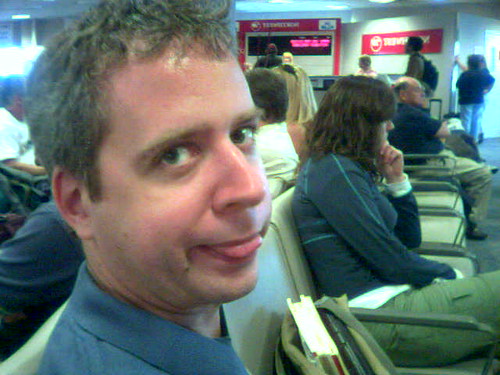I meant what I said about the "harrumph." In the boisterous waltzes, Friedman's downbeats have outrageous, tremendous impulse; they are huge, sprawling, but also springy, dancing catapults ... the intervening 2 and 3 beats are often overwhelmed, virtually swallowed within the downbeat's energy, in a way that modern conservatory education would find unacceptable (tut tut! don't swallow those beats!) I yell back: Yes Friedman, swallow them! Keep it coming! Go for it, baby! This is taken to almost comical extremes, admittedly; sometimes neither the rhythms or notes of the 2 or 3 are very clear or accurate, there is only a vague sense of intervening chatter between the rollicking, galloping 1s. This is when Friedman surrenders himself entirely to the waltz as frenzy, as leap, as twirl... then he stops, reassembles, recomports himself, a tender strain enters ... everything is suddenly placed again, the internal beats are nuanced, proportioned, perfect .... ah, Vienna, the good old days...
A very famous pianist (and irreproachable artist) of my acquaintance disparaged Friedman for being too crass. I know he is wrong. Or, maybe, I think he is right but I don't care; when he says it it passes into one ear, one lobe of my brain, and I smile an empty smile; the other lobe recalls all my favorite Friedman moments and adores them internally while I pretend to agree. Am I a hypocrite? Anyway, Friedman makes up for any vulgarities--his sudden accents, added octaves, etc.--with an abundance of grace. His B-flat Chopin Polonaise (which comes right after Alt Wien in my Naxos recording) is a virtual philosophical demonstration of charm (Hmmm, apply the Kantian Categorical Imperative: what if every pianist in the world today were suddenly compelled to play as charmingly as that? Would piano playing in the modern world come to an end?), he transfigures an "ordinary" piece: Chopin's filigree has never been so light, and not sugary-sweet-syrupy-silly... simply appropriate, decorative, the pianist's hand passing over the keys, "like a feather."
I know what it is: Friedman's playing is not limited by a Beethovenian "es muss sein" (it must be)... it has a place for the arbitrary and the accidental. Sometimes he seems motivated by rhythmic/musical forces from another planet, and there is no way to know what he is thinking, and why he is thinking it. This makes me happy; I puzzle over his rhythms with pleasure. For example, Friedman's account of the opening (rather simple) bars of the B-flat Polonaise doesn't resemble any way that anyone I know would play the dotted rhythms they contain. It is as if some other layer of harmony and tension, unbeknownst to mortals, was apparent to Friedman, made it impossible to play the dotted rhythm in its typical tum-tee-tum; somehow the "tee" is too important to him, it's got something to say, it drags against itself. I adore these rhythmic displacements in his playing, irregularities born of secret expression which sometimes succeed and sometimes fail. I know a lot of pianists out there cannot accept the "sometimes fail" (despite this, they still sometimes fail, as we all do)--they must aim for the "always succeed."
In case you don't own any recordings of Ignaz Friedman, go on and buy one. Obviously he is one of my heroes, especially at 7 in the morning. And when else do we need heroes more desperately?
If you thought the writing in this post was a bit fanciful, perhaps it can be explained by this photograph, taken "candidly" in the Northwest airlines terminal, awaiting the flight that Friedman woke me up for, which I feel captures my state of mind perfectly. I append it with no further comment.


2 comments:
from Leon
At last a brillian critic. Who can it be. My God, it's my Jeremy!
Who is taking the picture, I want to know.Denk you are cuuuuuuute! And that to lighten up on the analysis a little bit.It is interesting, yes, intentionally rhetorical and overworded, yes, but I forgive you, because your playing is sublime (I have heard you live) and...you're cuuuuuuute.
Post a Comment